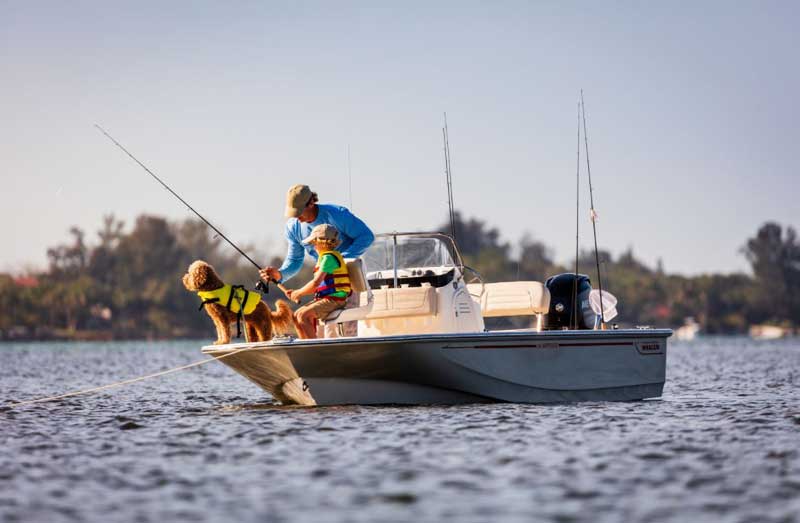With President Biden’s signing of the $1.2 trillion bipartisan Infrastructure Investment and Jobs Act (IIJA), you may have mistakenly thought that only road, bridge, rail, power and water infrastructure, public transit, drinking and wastewater, high speed internet, environmental, and clean energy interests may benefit. The nation’s largest advocacy, services, and safety group, Boat Owners Association of The United States (BoatUS), says recreational boaters also made some significant gains on the bill touted as a “once-in-a-generation investment in our infrastructure.”

The biggest payoff for boaters with the IIJA comes the reauthorization of the “Sport Fish Restoration, Recreational Boating Safety, and Wildlife Restoration Act of 2021,” which provides funding for state-based conservation programs, boating safety, aquatic resources education, pumpout, derelict vessel, fisheries management, and restoration.
‘Sport Fish’ also funds recreational boat access, such as local launch ramps, as well as the highly popular Boating Infrastructure Grant (BIG) program that grows the availability of safe and protected harborage for overnight, transient boaters. A “user pay – public benefit” funding mechanism, Sport Fish’s nearly $650 million trust fund budget comes from boat fuel taxes and excise taxes paid by boaters and anglers purchasing fishing and boating equipment.
“The reauthorization of Sport Fish is the cornerstone of so much of what recreational boaters and anglers connect to while on the water,” said BoatUS manager of government affairs David Kennedy. He adds, “BoatUS greatly thanks Sport Fish reauthorization bill sponsors, Sens. Maria Cantwell (D-WA) and Roger Wicker (R-MS), and Reps. Debbie Dingell (D-MI) and Garett Graves (R-LA). Their bipartisanship is a big plus for boaters and anglers.”
Sport Fish reauthorization will also pay for a comprehensive study on the growing number of non-motorized paddlecraft, resultant user conflicts, and potential for increased accidents. Kennedy notes that while paddlecraft operators utilize launch ramps and other recreational boating facilities, “they do not currently pay into the trust fund, and we need to look at how to equitably fund waterway access points.”
IIJA also provides funds to US Army Corps of Engineers and other water-resource projects, including inland waterways construction, flood control, resiliency, watershed rehabilitation, aquatic ecosystem restoration, invasive species control, marine debris removal, and inland and coastal navigation projects — all good things to any boater’s or angler’s ear.